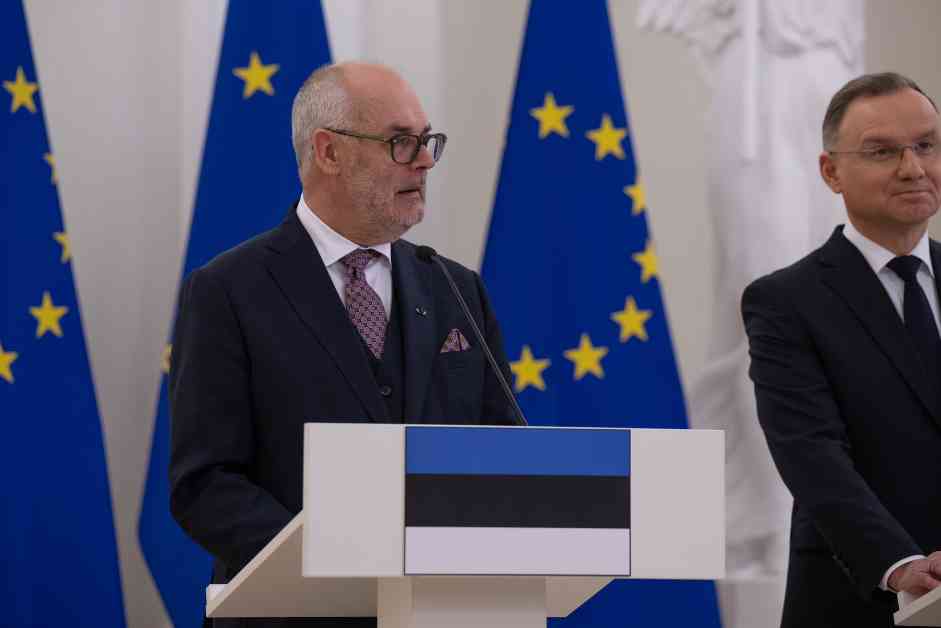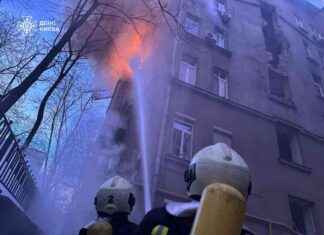Estonian President Alar Karis Calls for Full EU Trade Embargo on Russia
Estonian President Alar Karis has made a bold statement by advocating for a complete trade embargo against Russia by the European Union. This significant move comes in the midst of escalating tensions between Europe and Moscow, particularly in light of the ongoing Russo-Ukrainian War. Karis’ stance reflects a broader initiative to reduce Russian influence over Europe and strengthen the continent’s autonomy.
Karis, along with other European leaders, including the presidents of the European Commission, Latvia, and Poland, gathered in Vilnius on Sunday, February 9. The meeting coincided with the synchronization of the Baltic States’ energy systems with continental Europe. During the event, Karis emphasized the importance of enhancing the EU’s independence from Russian energy sources.
In a compelling address, Karis stated, “The European Union should further bolster its independence and discontinue all Russian energy imports. We must even seriously contemplate imposing a full trade embargo on Russia.” This strong stance underscores the urgency of reducing Europe’s reliance on Russian energy supplies.
Dan Jorgensen, a member of the European Commission overseeing energy and housing, echoed Karis’ sentiments, highlighting the pressing need for European countries to achieve complete energy independence from Russia. The Russo-Ukrainian War has served as a stark reminder of the risks associated with relying on Russian energy sources.
On February 8, Lithuania, Latvia, and Estonia successfully disconnected from the Russian power grid, which has been operational since the Soviet era. This strategic move enabled the Baltic States to operate autonomously before connecting to Western European power grids the following day. The transition marked a significant milestone in reducing Russia’s energy leverage in the region.
Estonian Prime Minister Kristen Michal hailed the occasion as a “momentous day,” underscoring the significance of breaking away from Russian energy ties. Kaja Kallas, the former Estonian Prime Minister and current EU chief diplomat, described the event as a “victory for freedom and European unity,” emphasizing the collective effort to promote independence and solidarity within Europe.
Expert Insights on the EU’s Energy Transition
As Europe continues to navigate complex geopolitical dynamics, experts emphasize the importance of diversifying energy sources and reducing dependence on Russian imports. Achieving energy independence is not only a matter of security but also a strategic imperative for safeguarding Europe’s autonomy in the long term.
According to energy analysts, the transition away from Russian energy supplies requires careful planning and investment in alternative sources, such as renewable energy and liquefied natural gas. By diversifying its energy portfolio, Europe can mitigate geopolitical risks and strengthen its resilience in the face of external threats.
Implications for European Security and Stability
The push for a full trade embargo on Russia signals a shift in European foreign policy towards a more assertive stance against Moscow’s aggressive actions. By imposing economic sanctions and reducing trade ties, European leaders are sending a clear message that violations of international norms will not be tolerated.
The ongoing tensions between Europe and Russia underscore the need for solidarity and cohesion within the EU. As member states take decisive steps to safeguard their energy security, the broader implications for European security and stability come into focus. By forging a united front against external threats, Europe can enhance its resilience and protect its interests in an increasingly volatile world.
In conclusion, Estonian President Alar Karis’ call for a full EU trade embargo on Russia reflects a pivotal moment in Europe’s efforts to assert its independence and strengthen its resilience in the face of geopolitical challenges. As the continent navigates complex dynamics, the push for energy autonomy and strategic unity is paramount for ensuring a stable and secure future for all European nations.

















